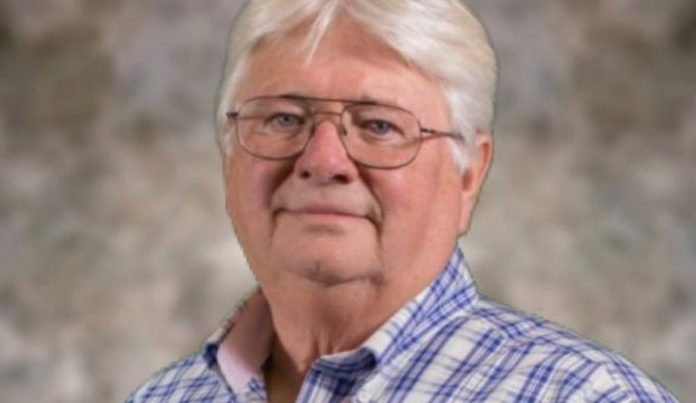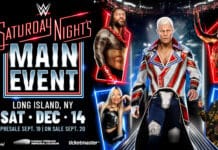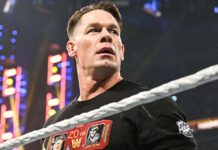
I was very sad to hear the news that legendary promoter, Jerry Jarrett passed away last week at the age of 80. Known as one of the architects of the business, Jerry was one of the driving forces behind the Memphis territory, and while some of it might get overlooked because of its regional ties, Jerry Jarrett had a profound impact on the entire industry for decades.
The Jarrett name, nationally known for Jerry’s son, Jeff working for the WWF, WCW, and TNA in the more modern era, spans back as far as the 50s when Jerry’s mom, Christine Jarrett started working in the ticket office for the Roy Welch and Nick Gulas group. “Teeny” became a fixture of the wrestling circuit in the territory, eventually running cards under the Welch/Gulas banner. With his family already with a vested interest in the ticket sales of the towns, a teenage Jerry helped promote the events with poster and ticket distribution when he was barely old enough to get a driver’s license.
By the early-70s, Jerry Lawler was on his way to becoming a Memphis icon as “The King” of the territory, and Jerry Jarrett, who began wrestling a few years earlier, already started booking cards. The infamous split between Jarrett and the Welch/Gulas organization saw a brief dispute between the two sides before Jarrett, who had his top star in Lawler, claimed the territory. In his memoir, “The Best of Times” Jerry Jarrett explained that he invested money into the Welch/Gulas organization with the understanding that he would have a stake in the territory, which would theoretically translate to a percentage of sales in certain towns. According to Jarrett, Gulas refused to pay Jarrett based on the investment in the territory so Jerry decided to run events on his own, winning the wrestling war rather quickly because of the TV distribution he secured in the area.
The wild action of Memphis in its heyday, and the ripple effect it had on the business speak volumes to Jerry’s skills as a booker and promoter. When the WWF’s national expansion of the early-80s put pressure on the regional organization, Memphis stayed afloat, keeping itself in a “bubble” so to speak with a style tailored toward its local audiences. The names changed, with many of the biggest stars of the future making stops in the organization over the years, but the formula of wild brawls and an emphasis on heat to draw money kept the doors open longer than any other territory. Throughout the late-80s, specifically when World Class folded, Jarrett ran USWA into the 90s. The Memphis territory run in some form or fashion until 1997 when Jerry finally sold his portion of the company.
A smart and shrewd businessman, Jerry Jarrett knew how to run on a shoestring budget and make the most of what he had on the roster at any given time.Outside of Lawler and one or two of the other top guys in the organization, wrestlers didn’t go to Memphis to make big money, but again, it was a place where many future major stars gained valuable experience, as well as a place for established stars to get a short run before they went to their next full-time gig in a different territory.
Jerry Jarrett’s mind for the business was well-respected and there wasn’t a better example of that than when he was brought into the WWF while Vince McMahon was on trial during the steroid scandal of the early-90s. If Vince did the job to Uncle Sam, Jerry Jarrett was trusted with running the WWF.
After he sold the USWA in the late-90s, Jerry invested his wrestling profits into a construction business that did very well into the early-2000s, landing a contract to remodel BP and Shell gas stations throughout the southwest, generating substantial cash. Part of that revenue was put towards the eventual launch of Total Nonstop Action in 2002. After Jeff saw that there was a market for pro wrestling outside of the WWE in the aftermath of the Attitude Era during his tours with the infamous World Wrestling All-Stars, he brought the concept of an upstart organization to his dad. As Jeff detailed on his “My World” podcast, he invested just over $600,000 to start the organization, while Jerry invested over $300,000 for a share of the company.
The rocky road of TNA is a different discussion for another time, but considering that the network executives just saw WCW go from the top show on cable to out of business in the span of three years, television wasn’t clamoring for another pro wrestling entity. Without Jerry’s initial involvement and business background to take the concept to outside investors, it’s very possible that TNA wouldn’t have launched. As we know, several major stars of today originally got their first major exposure under the TNA banner. Sadly, the tough times led to a strained relationship between Jerry and Jeff, with the father and son not speaking for several years as a result of the business disagreements surrounding TNA.
Thankfully, their relationship was mended in more recent years and they were on good terms, with Jerry and Jeff both appearing on The Tales From The Territories series on Vice TV just a few months ago.
I actually had the chance to meet the legendary promoter about a decade ago. Jerry made a rare independent appearance at one of the organizations that I did commentary for in Pittsburgh because he knew the local promoter through his time as a member of the NWA. At the time, I had only started doing commentary about three years earlier, but had the chance to work with current MLW commentator, the great Joe Dombrowski for the organization’s local TV program that aired on WBGN. Dombrowski, who has zigzagged around the independents for the past two decades, was extremely helpful, and I wouldn’t be the announcer I am today without the chance that I had to work with him. Jerry, who was 70 at the time, was seated a few spaces down from out mics and watched the entire show from the press box. I was well aware of his legendary career and tried to sound as polished as possible, even at a younger age. After the show finished, I walked over to Jerry to say hello, and to my surprise, he introduced himself to me, saying “hello, I’m Jerry Jarrett” in a very friendly tone. To be honest, I didn’t expect him to say too much to me because I was just the play-by-play announcer of some alphabet soup independent group that he would forget about by the time he got home, but his humble nature was such that he didn’t just assume everyone would know his legendary reputation. I immediately said, “Absolutely, sir. I know who you are and it’s an honor to meet you.” he replied “you sounded good over there.” I thanked him several times, and that interaction has always stuck with me because if Jerry Jarrett can be approachable then there’s no excuse for anyone else to consider themselves too big of a star to be polite in the wrestling business. I try to afford that same kindness when I get information from rookie wrestlers for broadcasts on the events that I announce today. In a business driven by egos, Jerry Jarrett was humble and kind, which speaks to his character even outside of the wrestling business.
Sincere condolences to Jerry’s friends and family at this difficult time.
What do you think? Share your thoughts, opinions, feedback, and anything else that was raised on Twitter @PWMania and Facebook.com/PWMania.
Until next week
-Jim LaMotta
E mail [email protected] | You can follow me on Instagram & Facebook @jimlamotta89







